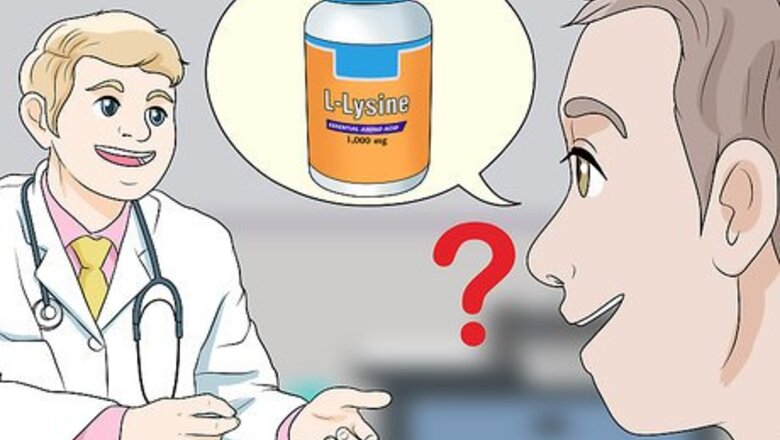
views
X
Research source
Taking L-Lysine Supplements
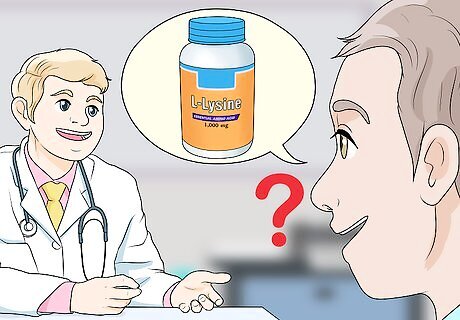
Consult your doctor before taking lysine supplements. If you are interested in taking lysine, your doctor will be able to advise you about the supplement. They can also consult with you about any possible drug interactions you should be cautious about when taking lysine, such as if you take calcium. A naturopathic doctor, someone who focuses on natural therapies, may be more likely to suggest lysine than other doctors.
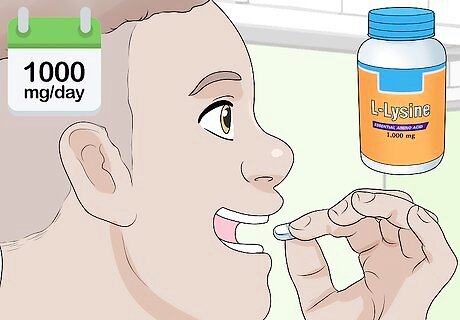
Take around 1000mg per day. While there needs to be more scientific research done on how much lysine to take, it is generally advisable to take approximately 1000mg per day. A person's general daily dietary requirement for lysine is 8 grams a day. Adding 1000mg daily with a supplement will help offset a small deficit in that dietary requirement. Even if you have a diet high in lysine, taking a supplement is typically fine. Recommended dosing for lysine varies dramatically. Any amount between 500mg and 3000mg per day may be recommended by your doctor or naturopath. Any dose under 8 grams is not likely to be toxic, but always follow your doctor's instructions.

Avoid a diet high in arginine-containing foods. Foods that are high in arginine, such as chocolate, nuts, and dairy, can minimize the effectiveness of lysine supplements because it will lower your level of lysine. This is because it uses the same body pathways as lysine. Additionally, high arginine foods can actually make cold sores worse, so they should be avoided in general if you have a herpes simplex infection.

Do not take large amounts of calcium when taking lysine. One side effect of taking lysine is that it can cause you to absorb more calcium than normal. If you take a calcium supplement, only a portion of that supplement is normally absorbed by the body. Combined with lysine, you may absorb more than you need. Talk to your doctor before combining these 2 supplements. Consider limiting calcium-rich foods, such as milk, as well if you tend to eat a lot of them.
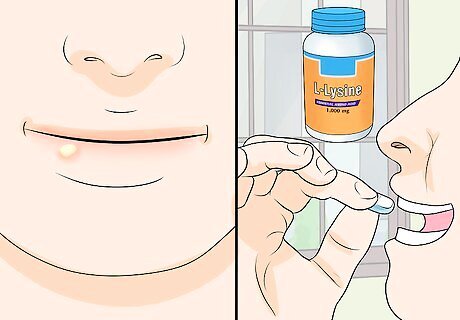
Take lysine supplements when you feel cold sores coming on. Lysine supplements are usually taken to prevent cold sores before they appear, but if you are not already taking them, it can be helpful in reducing the symptoms of an outbreak as well. Follow the directions on the supplements packaging and be consistent about taking it for as long as an outbreak lasts. If you have cold sores caused by the herpes virus, talk to your doctor about whether lysine might help with your outbreaks. There are other treatments for cold sores that have been well researched. If you have frequent outbreaks of cold sores, talk to your doctor about taking an antiviral medication that will prevent outbreaks.
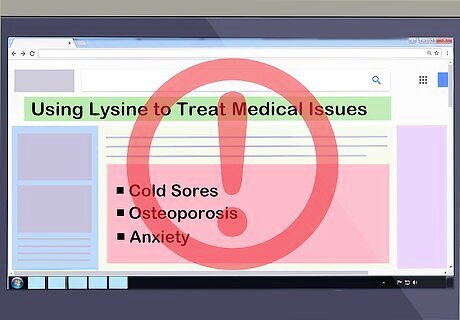
Be aware of the limited research on using lysine to treat medical issues. There is some scientific research that supports the use of lysine for cold sores, and a lot of anecdotal stories about its success. However, more scientific work is needed to truly verify its effectiveness on cold sores and other conditions, such as osteoporosis and anxiety. Keep this uncertainty in mind when taking lysine, as it's important to use caution when taking it and so that you manage your expectations about its effectiveness.
Increasing L-Lysine in Your Diet

Eat poultry on a regular basis. Various types of poultry, including chicken and turkey, have very high rates of lysine. Add chicken and turkey into your diet to get a boost of lysine. Chicken and turkey both contain about 4000mg of lysine in every 200 calorie serving.
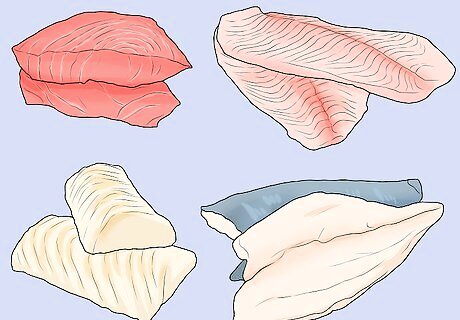
Add fish to your diet. A food that is commonly available and high in lysine is fish. Specific types of fish that can add a lot of lysine into your system include tuna, cod, pike, and ling fish. Fish is a particularly healthy choice when trying to add lysine to your diet. In addition to being high in lysine, fatty fishes like tuna are high in omega-3 fatty acids, which help brain and body function.

Include beans in your meals at least once a week. Beans are another food that is high in protein and lysine. You can cook dried beans by soaking them overnight and then simmering them in water. You can also simply use canned beans, which can be eaten cold or heated up. The amount of lysine beans have varies based on the specific type of bean. However, most beans contain about 1000mg of lysine for a 200 calorie serving.
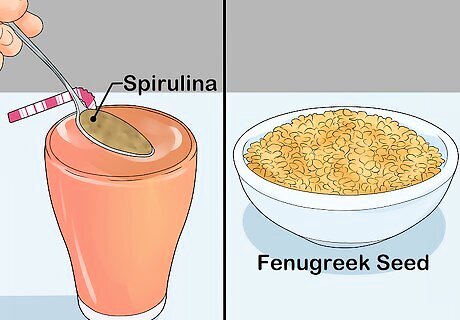
Add specialty foods that are high in lysine to your meals. There are some very specific foods that are high in lysine. For instance, spirulina and fenugreek seed both have high levels of lysine. If you are feeling adventurous and you want to make a meal that is out of the ordinary, consider adding one of these items to your meals at least once a week. Spirulina is a blue-green algae. An easy way to add it to your diet is to add put it in smoothies. It will turn your smoothie green but will not add a distinctive flavor to it. If you want to eat fenugreek, look for recipes that call for garam masala. Fenugreek is a key part of most garam masala spice blends.



















Comments
0 comment